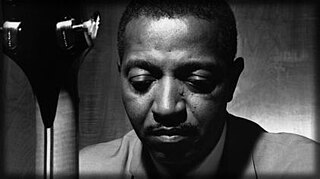Related Research Articles

Oscar Emmanuel Peterson was a Canadian jazz pianist and composer. As a virtuoso who is considered to be one of the greatest jazz pianists of all time, Peterson released more than 200 recordings, won eight Grammy Awards, as well as a lifetime achievement award from the Recording Academy, and received numerous other awards and honours. He played thousands of concerts worldwide in a career lasting more than 60 years. He was called the "Maharaja of the keyboard" by Duke Ellington, simply "O.P." by his friends, and informally in the jazz community, "the King of inside swing".

Norman Granz was an American jazz record producer and concert promoter. He founded the record labels Clef, Norgran, Down Home, Verve, and Pablo and the Jazz at the Philharmonic concert series. Granz was acknowledged as "the most successful impresario in the history of jazz". He was also a champion of racial equality, insisting, for example, on integrating audiences at concerts he promoted.

William James "Count" Basie was an American jazz pianist, organist, bandleader, and composer. In 1935, he formed the Count Basie Orchestra, and in 1936 took them to Chicago for a long engagement and their first recording. He led the group for almost 50 years, creating innovations like the use of two "split" tenor saxophones, emphasizing the rhythm section, riffing with a big band, using arrangers to broaden their sound, his minimalist piano style, and others.

Harry "Sweets" Edison was an American jazz trumpeter and a member of the Count Basie Orchestra. His most important contribution was as a Hollywood studio musician, whose muted trumpet can be heard backing singers, most notably Frank Sinatra.

Boniface Ferdinand Leonard "Buddy" DeFranco was an American jazz clarinetist. In addition to his work as a bandleader, DeFranco led the Glenn Miller Orchestra for almost a decade in the 1960s and 1970s.

Frederick William Green was an American swing jazz guitarist who played rhythm guitar with the Count Basie Orchestra for almost fifty years.

Jazz at Santa Monica '72 is a 1972 live album by the American jazz singer Ella Fitzgerald, recorded at the Santa Monica Civic Auditorium accompanied by a jazz trio led by the pianist Tommy Flanagan, and the Count Basie Orchestra.
"If I Were a Bell" is a song composed by Frank Loesser for his 1950 musical Guys and Dolls.
"Pennies from Heaven" is a 1936 American popular song with music by Arthur Johnston and lyrics by Johnny Burke. It was introduced by Bing Crosby with Georgie Stoll and his Orchestra in the 1936 film of the same name.
"I'm Beginning to See the Light" is a popular song and jazz standard, with music written by Duke Ellington, Johnny Hodges, and Harry James and lyrics by Don George and published in 1944.

Night Rider is an album by Oscar Peterson and Count Basie.

Count Basie Meets Oscar Peterson – The Timekeepers is a 1983 album by Oscar Peterson and Count Basie. It was recorded on February 21-22, 1978.

Satch and Josh is a 1974 album by Oscar Peterson and Count Basie.
"Jumpin' at the Woodside" is a song first recorded in 1938 by the Count Basie Orchestra, and considered one of the band's signature tunes. When first released it reached number 11 on the Billboard charts and remained on them for four weeks. Since then, it has become a frequently recorded jazz standard.

Oscar Peterson Plays Count Basie is a 1956 album by Oscar Peterson, of music associated with Count Basie.
"If You Could See Me Now" is a 1946 jazz standard, composed by Tadd Dameron. He wrote it especially for vocalist Sarah Vaughan, a frequent collaborator. Lyrics were written by Carl Sigman and it became one of Vaughan's signature songs, inducted into the Grammy Hall of Fame in 1998. Dameron himself included a version, sung by Barbara Winfield, on his 1962 album The Magic Touch.
John William Heard was an American bass player and artist. His recording credits include albums with Pharoah Sanders, George Duke, Oscar Peterson, Count Basie, Zoot Sims, Ahmad Jamal, Frank Morgan, George Cables. His professional jazz performance career lasted from the 1960s to the early 2010s, during which he also worked as a visual artist, producing drawings, paintings, and sculptures.

Basie Jazz is an album by pianist/bandleader Count Basie recorded in 1952 and released on the Clef label in 1954. Selections from this album were also released on the 1956 Clef LPs The Swinging Count! and Basie Rides Again!.

The Swinging Count! is an album by jazz pianist Count Basie in small group sessions recorded in 1952 and released in 1956 on the Clef label. Selections from this album were released on the 1954 Clef LP Basie Jazz.

Basie Rides Again! is an album by pianist/bandleader Count Basie recorded in 1952 and originally released on the Clef label in 1956. Selections from this album were previously released on the 1954 Clef LP Basie Jazz.
References
- ↑ "9:20 Special". Jazzstandards.com. Retrieved 12 December 2012.